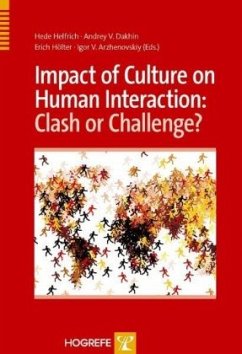Will cultural diversity inevitably result in a "clash" (antagonism) between cultural groups, or can we rise to the "challenge" of applying global standards of thought and behavior across diverse cultures? This is the main question examined in this unique book. Based on experiences and research in the context of the political, social, and economic reconstruction of the former Soviet Union, the book focuses on the risks and opportunities of intercultural cooperation and cultural diversity.The first part examines the administrative and political reforms in contemporary Russia from a comparative viewpoint. Capturing the polarities between governmental centralization and social self-organization, the contributions diagnose the roots of social conflicts in Russia and other countries and try to identify societal characteristics that may provide opportunities for mutual transfer of knowledge between East and West. The second part analyzes universal versus culture-specific aspects of human resource management. It addresses similarities and differences in values, work motivation, and decision-making in different cultures. As well as outlining future trends of cultural divergence and cultural convergence, possible means of promoting cultural synergy and concrete examples of this in the fields of economics and education are presented and evaluated. The uniqueness of the book lies in its interdisciplinary and international perspectives: Experts in the fields of sociology, philosophy, economics, psychology, political science, and administration from Russia, Moldavia, Germany, The Netherlands, the USA, China, South Korea, and Japan help to bridge the gap between different disciplines as well as between different countries.
Bitte wählen Sie Ihr Anliegen aus.
Rechnungen
Retourenschein anfordern
Bestellstatus
Storno

